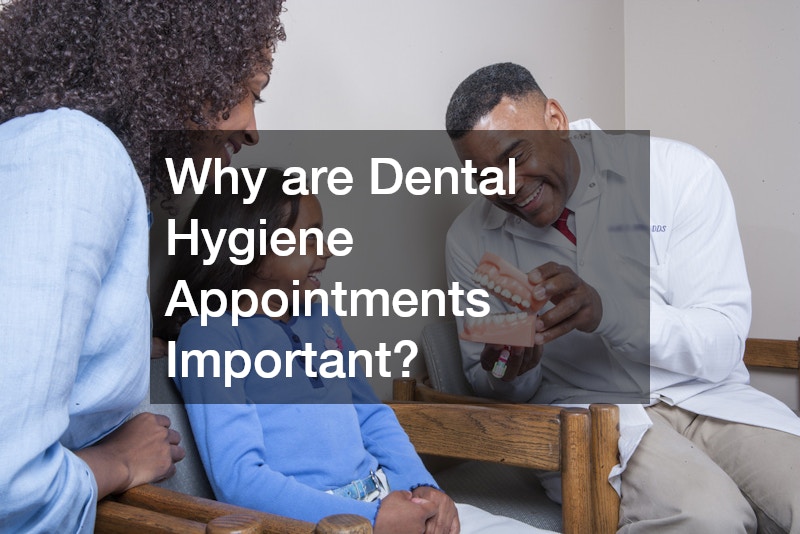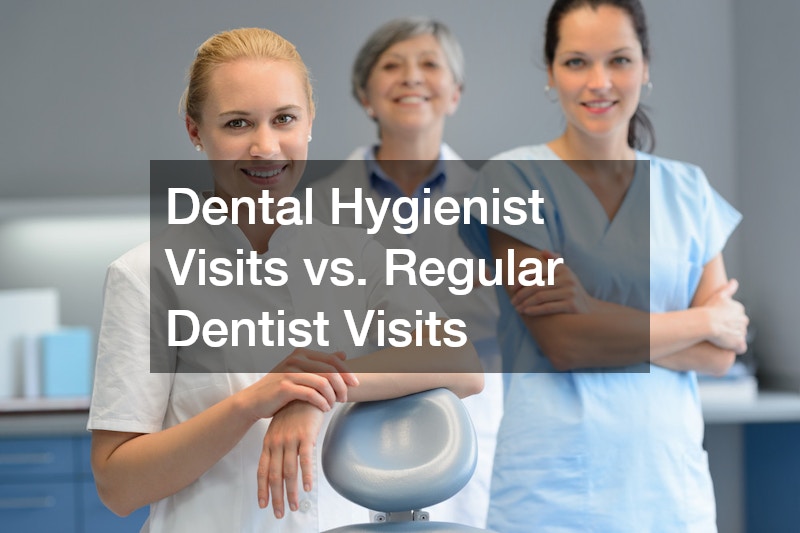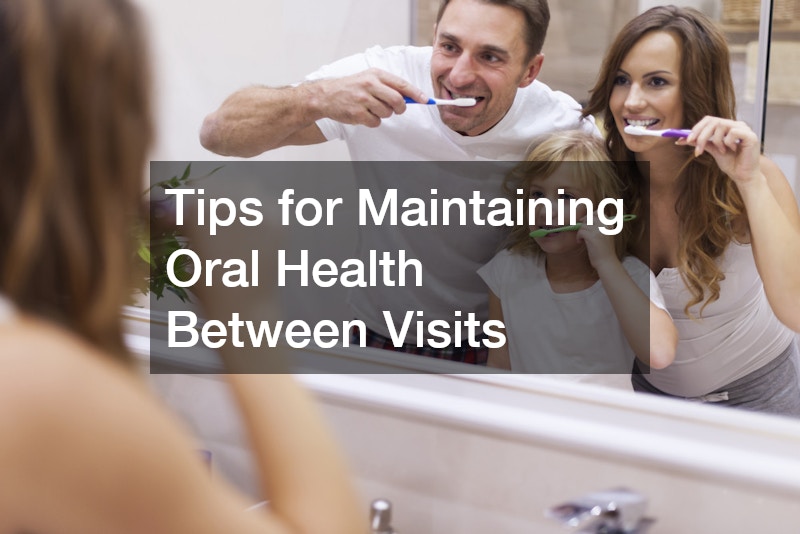The Importance of Visiting Dental Hygiene Appointments What You Need to Know for a Healthier Smile
Visiting dental hygiene and good oral health supports overall wellness. One of the best ways to protect your smile is by keeping regular dental hygiene appointments. Your local family dentist or hygienist helps stop dental issues before they start. These visits aren’t just cleanings—they are vital parts of your dental care. Pediatric dentists offer specialized care for children, while cosmetic dentists focus on enhancing your smile’s appearance. Understanding the value of routine hygiene appointments leads to better health outcomes. Many people skip these visits due to fear, time, or lack of knowledge. However, ignoring them can result in gum disease, tooth decay, or worse. This article explains why dental hygiene visits matter, what happens during them, and how to keep your teeth in top shape. These tips will help you maintain a bright, healthy smile and avoid serious dental problems.

Why are Dental Hygiene Appointments Important?
Dental hygiene appointments help prevent problems before they become severe. They include professional cleanings that remove tartar and plaque. These deposits can lead to gum disease and cavities. During your visit, your hygienist checks for early signs of oral health issues. Catching problems early can save you pain and money later. Cleanings also improve your teeth’s appearance. They remove stains and make your smile brighter. Hygienists provide advice to improve your home routine. They recommend better brushing, flossing, and product choices. Your mouth’s health affects your entire body. Poor oral hygiene may increase the risk of heart disease and diabetes. Regular dental care supports your whole-body wellness. These visits also allow you to ask questions and learn new hygiene techniques. Making them part of your routine keeps your teeth and gums strong for years. Your hygienist becomes an essential part of your long-term health team.
How Often Should You Visit a Dental Hygienist?
Most people should see a hygienist every six months. This frequency helps keep tartar under control. However, some people need more frequent visits. Smokers, people with gum disease, or those with many cavities are examples. Your dentist will create a care plan based on your needs. Signs like bad breath, swollen gums, or sensitivity mean you may need to go more often. Skipping visits can lead to bigger problems. Tooth loss and gum disease are common results. Staying consistent avoids emergencies and keeps treatment costs lower. Talk to your hygienist about your oral habits. They will recommend the best schedule. Individualized care ensures the most effective dental maintenance. Seeing your hygienist regularly keeps your smile and health on track.
What to Expect During a Dental Hygiene Appointment?
Your appointment begins with a review of your dental history. The hygienist asks about medications and health conditions. They check your gums and teeth for signs of trouble. Next comes cleaning. Plaque and tartar are scraped from your teeth. Polishing follows to remove surface stains. Your gums are examined for inflammation. Pocket depths are measured to detect early gum disease. The hygienist will offer brushing and flossing tips. Follow-up care might be suggested. This could include more visits or treatments like iv therapy. Pediatric dentists might apply fluoride for children to prevent cavities. Every step supports a healthy mouth. The hygienist ensures you’re informed about your dental condition. Expect helpful advice and a thorough, professional cleaning.

Dental Hygienist Visits vs. Regular Dentist Visits
While both dental hygienists and dentists play crucial roles in maintaining oral health, their functions are somewhat different. Dental hygienists primarily focus on preventive care, such as cleaning your teeth and gums, while dentists provide more specialized treatment, such as filling cavities, diagnosing dental diseases, and performing surgeries like orthodontic case acceptance for braces or dental implants. Hygienists typically focus on preventing oral issues from arising, while dentists address problems that have already developed. Both visits are essential for a complete approach to dental health, as hygienists help keep your teeth clean and free from plaque buildup, while dentists provide treatments that can correct existing issues. This integrative approach ensures that your oral health is managed comprehensively. It is important to understand that a dental hygiene visit does not replace a dentist’s visit but complements it by preventing future issues. A combination of regular visits can ensure that all aspects of your dental care are addressed. Regular checkups with both professionals help build a detailed oral health history, leading to better long-term outcomes and a more personalized care strategy.
Are Dental Hygiene Visits Covered by Insurance?
The cost of dental care can be a significant concern for many people. Fortunately, most insurance agencies offer some level of coverage for dental hygiene visits, particularly preventive care. Medical insurance plans often cover basic services like teeth cleaning, X-rays, and exams. However, the extent of your coverage will depend on your plan. Some insurance agencies may provide full coverage for preventive care, while others may only cover a portion of the costs. If you have health solutions through a local family dentist or specialized dental plans, it’s important to understand your specific coverage options. Many plans cover preventive care at 100%, but there may be copays or deductibles involved. If your insurance doesn’t cover the full cost, some dental offices offer alternative payment plans to make care more affordable. It’s a good idea to call your dental office in advance to verify what is covered and ask about financing options if needed. Staying informed about your coverage ensures you won’t face unexpected bills, helping you budget appropriately for your dental health needs.
How to Prepare for Your Dental Hygiene Appointment?
Proper preparation can help you get the most out of your dental hygiene appointment. One of the first things you should do is gather any necessary information, including your medical history, medications, and previous dental records. This helps your hygienist understand your overall health and tailor their care accordingly. Additionally, maintaining good hygiene practices before the visit, such as brushing and flossing, can ensure a smoother and more thorough cleaning process. If you have any concerns or have noticed specific dental issues, make sure to communicate existing concerns with your hygienist beforehand. This can include gum bleeding, tooth sensitivity, or discomfort. Setting realistic expectations is key—while a professional cleaning can do wonders, it’s essential to understand that issues like cavities or gum disease may require additional treatments. Preparing in advance will make the appointment more effective and ensure you receive the best possible care. Don’t forget to bring your insurance card and any relevant documents, which can streamline the check-in process and ensure that your appointment runs smoothly.

Tips for Maintaining Oral Health Between Visits
Maintaining oral health between dental hygiene visits requires diligence and a proactive approach. Daily brushing and flossing are essential for keeping plaque at bay and preventing cavities. Choose a fluoride toothpaste and brush for at least two minutes twice a day. Additionally, being mindful of your dietary habits can greatly impact your oral health. Avoid sugary foods and drinks, as they contribute to plaque buildup and cavities. Using products like fluoride mouth rinses and fluoride toothpaste can help strengthen enamel and protect your teeth from decay. Recognizing warning signs of potential problems as these can indicate gum disease or other oral health issues. If you’re experiencing any discomfort or changes in your oral health, it’s important to seek care early to avoid more serious complications. Regular maintenance of your oral health between visits ensures that your teeth stay strong and free from disease. Incorporating regular dental hygiene habits into your daily routine significantly lowers your risk of emergency dental visits and improves your long-term well-being.
What Are the Consequences of Skipping Dental Hygiene Visits?
Skipping dental hygiene appointments can have serious consequences for your oral health. The most immediate effect is an increased risk of cavities, as plaque and tartar buildup can cause tooth decay. Over time, gum disease can progress from gingivitis to more severe stages, leading to tooth loss and other complications. Additionally, skipping regular visits can lead to bad breath and aesthetic issues, such as stained or yellowed teeth. Long-term costs can also be significantly higher if problems are left untreated, as more extensive procedures, such as root canals or gum surgery, may be required. Overall health complications are another concern. Poor oral health has been linked to conditions like heart disease, diabetes, and respiratory infections. By prioritizing regular dental hygiene visits, you can avoid these potential issues and maintain better oral and overall health. Maintaining consistent appointments also fosters a relationship with your dental care team, which can improve your confidence and willingness to pursue ongoing care.
How Do Practices Differ for Different Age Groups?
Dental hygiene practices vary significantly depending on age. For children, pediatric dentists specialize in providing care tailored to younger patients, addressing issues like teething, early cavity prevention, and helping children become accustomed to regular dental visits. Adults, on the other hand, may require more specialized care for things like cosmetic dental work, fillings, or orthodontic treatment. Special considerations for seniors include managing conditions like dry mouth or gum recession, which become more common with age. Regular visits to a local family dentist ensure that all these age-specific concerns are addressed with personalized care and attention. Tailored recommendations from a dentist can help ensure that people of all ages maintain optimal oral health throughout their lives. Age-specific dental care ensures that patients receive relevant advice and treatments, which is particularly important as dental needs evolve from childhood through senior years.

What Innovations Are Transforming Dental Hygiene Visits?
Recent innovations are transforming how dental hygiene visits are conducted. For instance, advanced cleaning technologies such as ultrasonic scalers and laser dentistry have made cleanings more efficient and comfortable. Digital analysis tools are now used to detect issues like cavities or gum disease at a much earlier stage, improving early intervention. Patient comfort has also been improved through innovations in sedation dentistry, allowing patients to relax during treatments. Telehealth and virtual consultations are becoming more common, providing patients with access to dental care without having to visit the office in person. These advancements are making dental hygiene visits more effective, comfortable, and accessible, ensuring that everyone can maintain a healthy smile with minimal disruption to their daily lives. Many practices now use digital record-keeping and AI-powered diagnostics, making it easier to track changes over time and enhance communication between providers and patients.
Why Routine Dental Hygiene Visits Are Essential for Lifelong Oral Health
Visiting dental hygiene appointments is a fundamental aspect of maintaining good oral health. Regular visits to pediatric dentists for children, cosmetic dentists for aesthetic improvements, or your local family dentist for routine care are essential for preventing serious issues, catching problems early, and maintaining a healthy smile. These visits not only improve the appearance of your teeth but also contribute to your overall health by preventing oral diseases and identifying risks before they become severe. Regular hygiene appointments should be considered a key component of a comprehensive approach to health, alongside other health solutions such as proper nutrition and stress management. Whether you’re seeking help for orthodontic case acceptance, coverage from insurance agencies, or a veterinary hospital for pet care, understanding the role of dental hygiene visits in overall health is crucial. In today’s self-care culture, many individuals consider their oral health as part of broader wellness transformations like mommy makeovers, which often include dental enhancements to complement overall aesthetic goals. Embrace the benefits of professional care and take steps to ensure a lifetime of healthy smiles. Investing in your oral health is an investment in your overall well-being, paving the way for a healthier, more confident life.



